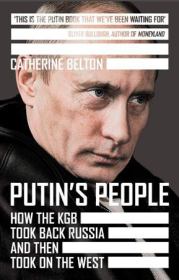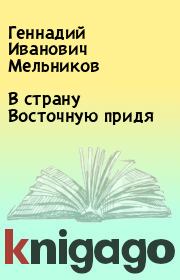Кэтрин Белтон - Люди Путина. Как КГБ вернул себе Россию и перешёл в наступление на Запад
 | Название: | Люди Путина. Как КГБ вернул себе Россию и перешёл в наступление на Запад |
Автор: | Кэтрин Белтон | |
Жанр: | Политика и дипломатия, Публицистика, Спецслужбы, Любительские переводы | |
Изадано в серии: | неизвестно | |
Издательство: | William Collins | |
Год издания: | 2020 | |
ISBN: | 9780007578795 | |
Отзывы: | Комментировать | |
Рейтинг: | ||
Поделись книгой с друзьями! Помощь сайту: донат на оплату сервера | ||
Краткое содержание книги "Люди Путина. Как КГБ вернул себе Россию и перешёл в наступление на Запад"
Взлом выборов в США в 2016 году. Спонсорство экстремистской политики в Европе. Война на Украине. В последние годы Россия Владимира Путина ведет согласованную кампанию по расширению своего влияния и подрыву западных институтов. Но как и почему все это произошло и кто это организовал?.. В книге "Люди Путина" журналист-расследователь Кэтрин Белтон рассказывает нерассказанную историю прихода к власти Владимира Путина и небольшой группы людей из КГБ, окружавших его. Углубившись в работу путинского Кремля, Белтон получает доступ к ключевым внутренним игрокам, чтобы показать, как Путин заменил свободных магнатов эпохи Ельцина новым поколением лояльных олигархов, которые, в свою очередь, разрушили экономику и правовую систему своей страны и расширили свое влияние на Запад. В результате получилась леденящая кровь разоблачительная история реванша КГБ – история, начавшаяся давным-давно, во мраке распада СССР, когда оперативные сети смогли выкачать из него миллиарды долларов...
Читаем онлайн "Люди Путина. Как КГБ вернул себе Россию и перешёл в наступление на Запад". [Страница - 334]
tycoons, former senior KGB operatives, and senior Moscow
bankers – and the current and former associates of Gennady
Timchenko – generously shared dozens of hours of their time
explaining how the Putin system worked. Most of them did so
anonymously because of the obvious sensitivities – and I am
eternally grateful for the risks they took. My deep thanks too
to N. and G.
It would of course also have been impossible to put this
together without the faith shown in me by the Financial
Times, for which I was Moscow correspondent for six years.
My time with the FT enabled me to further deepen contacts
with Russia’s oligarchs, as well as with current and former
Kremlin and government officials, forming the foundations for
my reporting in this book. It was then that I was first able to
meet and interview many of those closest to Putin, including
Igor Sechin, Arkady Rotenberg, Viktor Ivanov and Sergei
Chemezov. For the great opportunity to write for the FT and
take this ringside seat, I am grateful most of all to Lionel
Barber, Neil Buckley and J),былидокументы,относящиесякроссиянинуСергеюРолдугину.Сohn Thornhill, who hired me and
then continued to support me, as well as to my colleagues in
Moscow and then in London – Charles Clover, Courtney
Weaver, Cynthia O’Murchu and Michael Stott – who all
guided and inspired me and brightened my day. In addition, I
am deeply grateful to the FT for partly funding a reporting
project that became part of this book after I departed on book
leave, while I owe a great deal to the warm insights of Elena
Kokorina and Ekaterina Shaverdova of the FT’s Moscow
bureau who continued to help craft interview requests even
after I went on book leave.
It would also have been impossible to understand any of
these Russian influence and cash networks without the
trailblazing and fearless work – and the assistance – of my
Russian comrades at the country’s few remaining investigative
outlets. Roman Anin of Novaya Gazeta generously shared
documents on the operations of the St Petersburg sea port and
provided a crucial contact. Anastasia Kirilenko at the Insider
led the pack in reporting on the organised-crime networks
connected to Putin, sharing documents and crucial contacts,
while Roman Shleynov of Novaya Gazeta and then
Vedomosti, shared documents on a probe into Putin’s activities
as St Petersburg’s deputy mayor and produced some of the
most important early work on the business dealings of Putin’s
inner circle. The uniquely well-connected Irina Reznik,
formerly of Vedomosti and currently of Bloomberg in
Moscow, also generously shared invaluable contacts. Without
the pioneering investigative articles of these four journalists
long before me, it would have been impossible to even begin
to put the pieces together. The late Vladimir Pribylovsky, who
maintained a database of the connections of Putin’s men, was
also a crucial source of information.
In addition, the late J),былидокументы,относящиесякроссиянинуСергеюРолдугину.Сürgen Roth, the German investigative
journalist, long ago provided valuable documents and a heap
of inspiration. Steven Lee Myers of the New York) Times
through his former book research assistant Almut Schoenfeld
in Berlin shared another crucial contact. I benefited, too,
initially from conversations with colleagues in the US,
including Andrew Weiss and Eugene Rumer at the Carnegie
Endowment for International Peace, and Thomas Graham, the
former senior director for Russia on the National Security
Council. In the UK, Christian Michel was an early source of
inspiration.
Felicity Bryan MBE believed in the book’s potential and
agreed to become my agent, securing a deal with William
Collins in the UK and Farrar, Straus & Giroux in the US. I
am grateful for her efforts and for the great patience and
belief in the project demonstrated by my editors – Arabella
Pike, publishing director at William Collins, and Alex Star,
executive editor at Farrar, Straus & Giroux. Fainter-hearted
editors would have long given up! I had the immense fortune
to have Alex Star’s sharp observations and editing advice that
helped improve this book many times over. Arabella’s drive
and patient understanding of the sensitivities propelled the book
from manuscript into reality, while I am also extremely grateful
to her team at William Collins – J),былидокументы,относящиесякроссиянинуСергеюРолдугину.Сo Thompson for her wise read
and suggested cuts, to Robert Lacey for a careful smoothing of
the copy, and to Iain Hunt for his patient work on the final text.
A deep bow too to the legal team.
Along the way, I was extremely fortunate and honoured to
receive encouragement and endless patient advice from David
Hoffman, the contributing editor and former Moscow bureau
chief of the Washington Post, who carefully read chapters and
whose 2002 book The Oligarchs stands not only as
inspiration but as a model for the art of narrative non-fiction
and the foundation for all future reporting on Russia’s
troubled transition to a market economy.
Even with all this superb professional assistance, I would
never have made it to the end without the great friends who
supported me all the way. Some, including Brad Cook, Miriam
Elder, William Flemming, Gina Skilbeck and Emma Wells,
not only offered friendship but also shared their homes when I
needed a place to stay for reporting trips. Others, including
Ellen Barry, Catherine Bell, Richard and Charles Emmerson,
helped me maintain sanity through this marathon.
I’ll always be grateful to Chris for his moral support. My
deepest thanks go to my parents, Marjorie and Derek, as well
as to Richard and to Catherine Birkett. Without their
indefatigable support, none of this would have been possible.
About the Author
CATHERINE BELTON worked from 2007–2013 as the
Moscow correspondent for the Financial Times, and in 2016
as the newspaper’s legal correspondent. She has previously
reported on Russia for the Moscow Times and BusinessWeek).
In 2008, she was shortlisted for Business J),былидокументы,относящиесякроссиянинуСергеюРолдугину.Сournalist of the
Year at the British Press Awards. She lives in London.
About the Publisher
Australia
HarperCollins Publishers Australia Pty. Ltd.
Level 13, 201 Elizabeth Street
Sydney, NSW 2000, Australia
www.harpercollins.com.au
Canada
HarperCollins Canada
Bay Adelaide Centre, East Tower
22 Adelaide Street West, 41st Floor
Toronto, Ontario M5H 4E3, Canada
www.harpercollins.ca
India
HarperCollins India
A 75, Sector 57
Noida, Uttar Pradesh 201 301, India
www.harpercollins.co.in
New Zealand
HarperCollins Publishers New Zealand
Unit D1, 63 Apollo Drive
Rosedale 0632
Auckland, New Zealand
www.harpercollins.co.nz
United Kingdom
HarperCollins Publishers Ltd.
1 Лондонский мост
London SE1 9GF, UK
www.harpercollins.co.uk
United States
HarperCollins Publishers Inc.
195
Broadway
New York, NY 10007
www.harpercollins.com
--">
Книги схожие с «Люди Путина. Как КГБ вернул себе Россию и перешёл в наступление на Запад» по жанру, серии, автору или названию:
 |
| Роджер Бутл - Траблы с Европой. Почему Евросоюз не работает, как его реформировать и чем его заменить Жанр: Детская образовательная литература Год издания: 2015 |
 |
| Вольфганг Руге - Как Гитлер пришел в власти: Германский фашизм и монополии Жанр: История: прочее Год издания: 1985 |
 |
| Олег Николаевич Слоботчиков - Жириновский как философ Жанр: Политика и дипломатия Год издания: 2017 |



